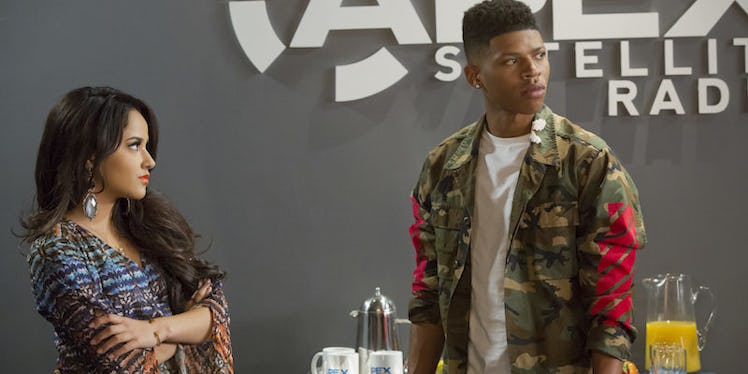
5 Comments Fair-Skinned Latinas Are Tired of Hearing
Gina Rodriguez, star of "Jane The Virgin" and one of the most prominent Millennial Latinas today, recently dealt with something all Millennials know too well: drama on Twitter.
In her case, she was accused of not being Latina enough.
Later, she went on Huffington Post Live, where she said, “I am as Latina as they come. I'm not defined by anybody’s definition of Latina. I don’t actually sit in a definition.”
Her words really resonated with me, as I’ve constantly had to deal with confused looks when people discover I’m Latina.
The US Census Bureau estimates there are roughly 55.4 million Hispanics throughout the US. This makes us the largest ethnic minority.
So guess what? They won’t all be brown-eyed, dark-skinned and curvy. Actually, in 2010, more than half the Hispanic population identified as white.
Latinas come in all shades and sizes. I happen to be as pale as can be, and I’m Latina through and through.
These are some of the comments I’ve had to deal with throughout the years:
1. "You don’t look Latina. Say something in Spanish."
Not only does this inform me of your limited knowledge, it also suddenly makes me feel inferior. Do I have to prove to you what culture I relate to?
Being Latina is an identity. Consequently, I've learned the expectations that go with that identity. These expectations include looking and talking like Sofia Vergara (who, by the way, is a natural blonde).
2. "What are you?"
These people will proceed to ask me what I am, as in where my family is from.
Simply put, I am an American citizen born in Argentina. For the uninitiated, who assume Mexicans are representative of all Latinos (at least this is the case in Los Angeles), Alexis Bledel is half Argentinean and half Mexican.
Despite being the majority in the United States, with prominent figures in all fields (including fellow fair-skinned Latina Sonia Sotomayor), there is very little knowledge and understanding of the diversity within Latin America.
From afro-Latinas to blue-eyed blondes, we run the gamut as far as our looks go. Where we’re from doesn’t necessarily determine that.
3. "I don’t really think of you as Latina."
My Caucasian friends have said this to me a few times, and it’s always offensive.
Part of being a Latina in the US sometimes means having to code switch. When I’m around my Caucasian friends, I blend in. This is not only because of my light complexion and lack of accent, but also because I act a certain way with them.
In a way, this is the most frustrating of them all. Even though someone like Jennifer Lopez doesn’t speak Spanish fluently, nobody “forgets” she’s Latina.
Yet, despite them knowing I’m Argentinean, my lack of those typical physical attributes makes me less of a Latina.
4. "You’re a güera (or gringa)."
Latinos are also guilty of assuming I’m not Latina. When I was in a predominantly Latino school, no one thought I spoke Spanish.
“Güera” is a Mexican term for light-skinned. Although it’s not necessarily a derogatory term, it immediately made me feel like I didn’t fit in.
Meanwhile, if I’m surrounded by Latinos who have no idea about my background, I’m immediately called a “gringa” (a non-Hispanic foreigner).
I get that my looks might throw people off. But before you jump to conclusions, how about you get to know me first?
5. You're not Latina enough.
I feel like I’m almost always straddled between two worlds as an immigrant and an American, but for someone to say I’m not Latina enough because of the most superficial reason is just plain ignorant and rude.
While my identity is fluid and I can be more American or Argentinean (depending on the situation), it doesn’t change who I am.
Gina said it best when she said:
It’s like anybody turning to you and being, ‘You ain’t human enough, you ain’t pretty enough, you ain’t tall enough, you ain’t big enough.’ What do you mean I’m not enough? No, I am enough. I am fully enough. And you’re enough. And the girl that’s half and half is enough. And the girl that only speaks Spanish is enough.
Mic drop.